Paradox Games debuted two new games at GenCon: Europa Universalis and Crusader Kings. In my interview with Paradox’s Marketing Manager Luca Kling, he emphasized the value of retaining the core elements of their video games as they’re translated to the tabletop. Shortly after our chat, I got to see this philosophy at work when I got to demo their new games with the designers from Aegir and Free League themselves.
Deus Vult!
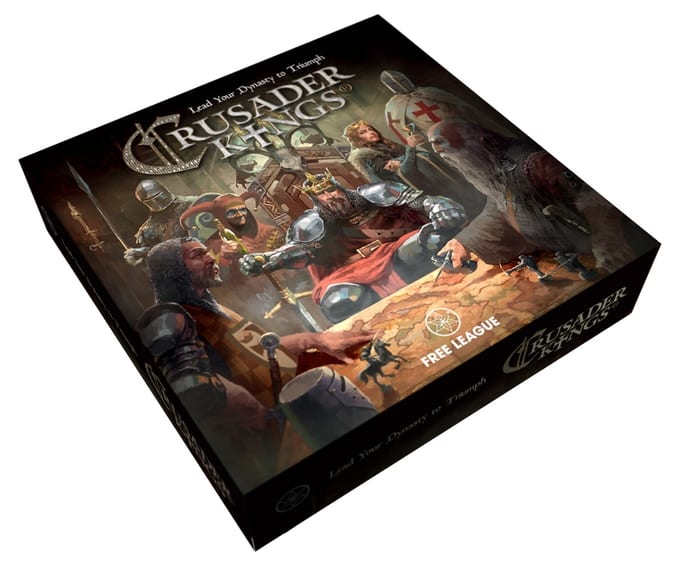
The Crusader Kings board game was one of our Top 10 Most Anticipated Games debuting at GenCon, so I was extremely excited to check the game out. Of the games Paradox is releasing, it is the furthest along. It recently finished up an incredibly successful Kickstarter that raised 4.7 million Krona (over $500,000). Paradox and Free League hit all of their stretch goals (including a marriable Glitterhoof!), and are close to releasing the game to retail.
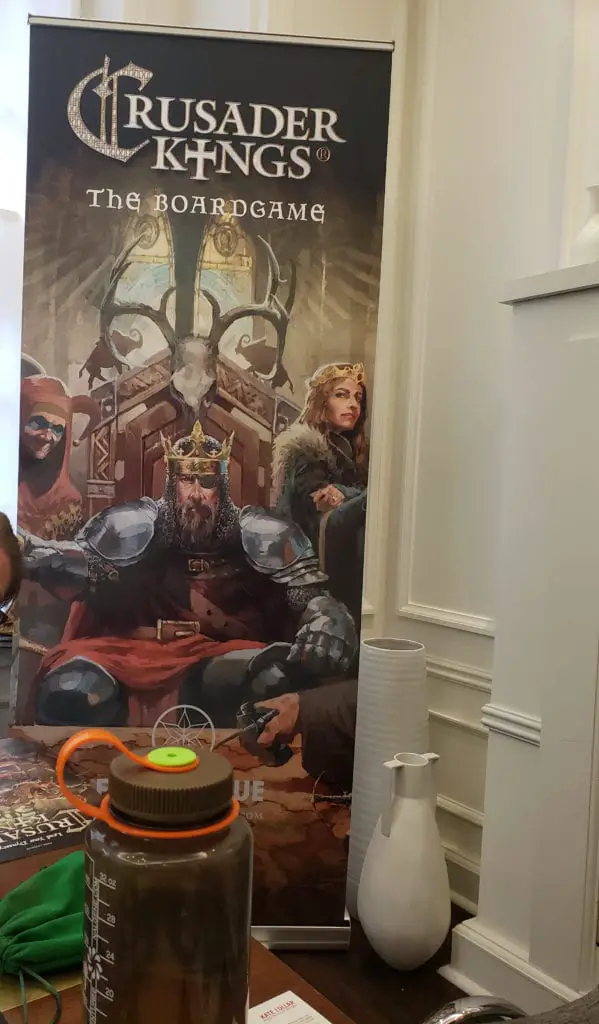
The board itself emulates a medieval map of Europe, focusing on the ruling dynasties of the era rather than the kingdoms they rule (especially considering the rapidly shifting borders of said kingdoms). The outside of the board is ringed with the playboards of each dynasty. What those dynasties are and where they sit in the world is all dependent on the scenarios you choose to start the game with. We started with the houses of Hauteville (Italy), Normandy(England), Württemberg (Germany), and Capet (France) at the beginning of the 11th century.
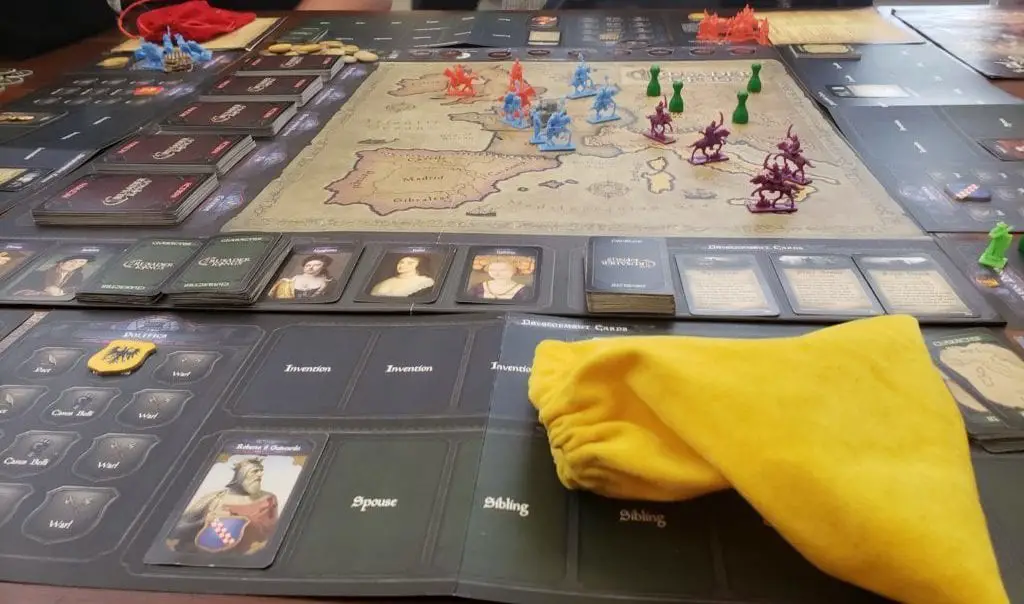
Players then choose between actions like waging war, building up their kingdom, commuting acts of subterfuge, being diplomatic, or, of course, going on a crusade. You get a certain amount actions drawn from each category, represented as piles of cards, and what you choose dictates your kingdom. But that isn’t the only thing that affects your ruler.
The interesting part of Crusader Kings, both on the computer and on the tabletop, is the way a ruler’s traits define their strategies. Your ruler, their spouse, and their children all have special traits that inform what might work best for you. This manifests in how one “rolls” in this game. “Dice free” games are gaining steam at GenCon, and CK is one of them. Rather than rolling a die to decide your fate, you place your traits into your little bag, shake them, then draw one at random. If the trait is good (or good for your action at least), then you succeed! A bad trait means a fail. Take my king, Roberto il Guiscardo, for instance:
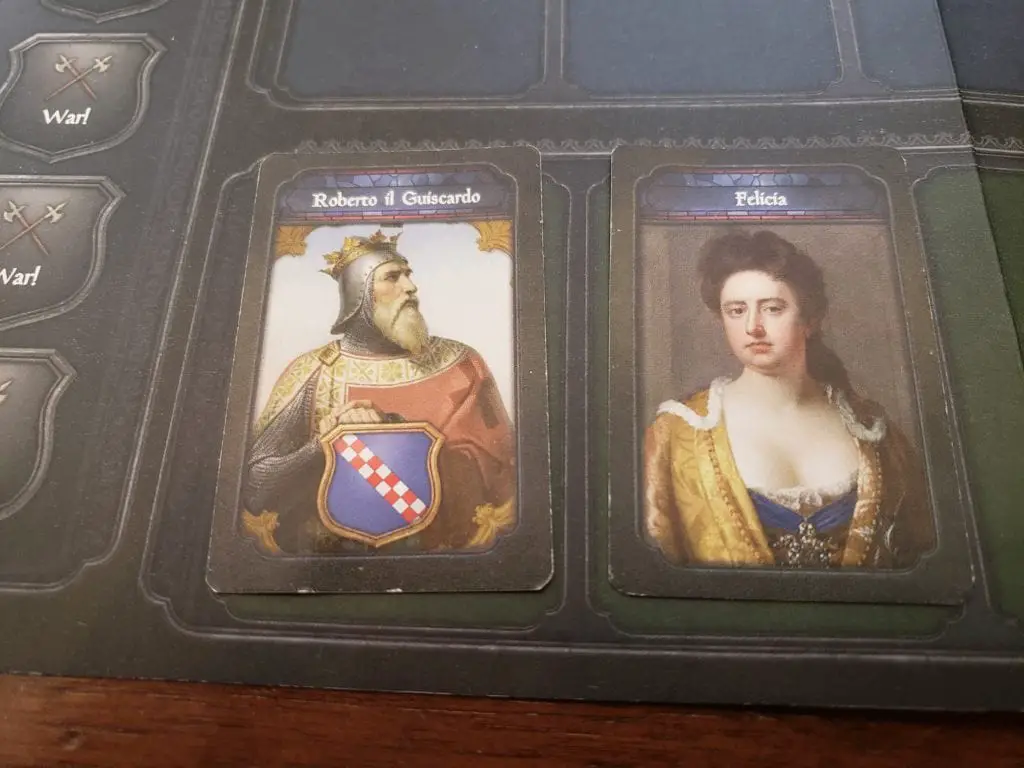
Roberto is brave but deceitful king, giving him an advantage on belligerent actions but making him rather bad at diplomacy. He’s also good at spying actions such as murder and unrest even though the deceitful trait is ostensibly bad. His wife, Felicia, is honorable. By marrying her he can add that trait to his bag, increasing his chances of success. His children, which he never got during the demo, would also get their own random trait that affects their chances of marriage.
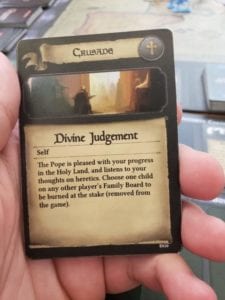
The game moves between eras and covers the hundreds of years covered in the original. Each action you take can lead to consequences. For instance, I caused unrest in south France, a prelude to invasion. But it led to a plague in my own land. Another player raised armies but caused a civil war in their lands. A lot of the action takes place off-board as you plot murder, make matches, and build your connections and spread your influence.
Just like the original, there’s a deeper strategy beneath the Risk-esque trappings. The Kickstarter added a lot of really cool features like an AI for single or two player games, new scenarios and crusades, and added rules like Dukes and Duchesses. The standard edition is retailing for around $70 based on the Kickstarter, but that may change. But I will for sure be picking it up when it hits shelves. The game is gorgeous, mixing real-life medieval portraits, game assets, and original art together to really capture the feel of both Medieval Europe and the original Crusader Kings games. It is one of the coolest games coming out this year and promises a lot of engaging gameplay that is fun for new fans and familiar to Paradox veterans.
Can Europa Into Board Games?
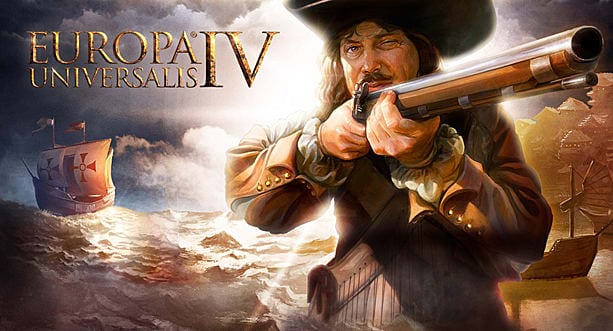
The second game we demo’d was the board game adaptation of Europa Universalis. EU debuted at GenCon, and I was one of the first people in the world able to get my hands on the prototype of the game. While the original EU was an epic war game that could take days to play, the new EU is meant to be played with friends in around one to three hours. Aegir Games did not forget the game’s roots, however, and included rules for a “Grand Strategy Mode” that complicates things a bit and extends gameplay more into the range of five to eight hours.
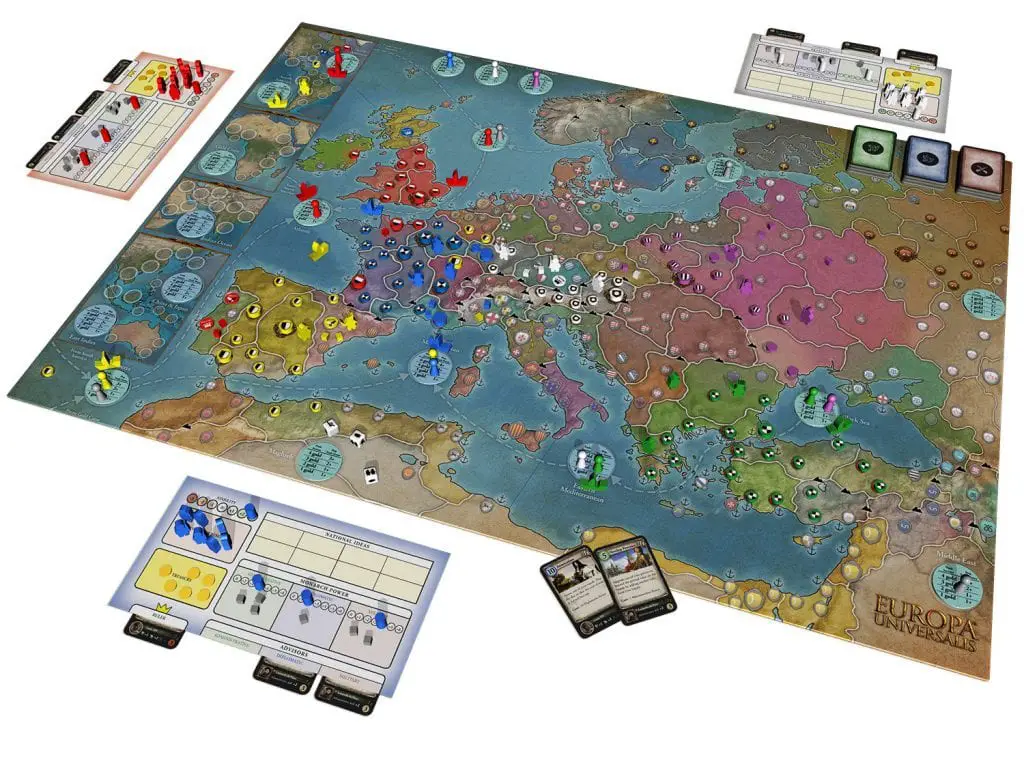
The game, just like the video game version, takes place on a MUCH grander scale than Crusader Kings. While still heavily Eurocentric, it expands the map to include everywhere from the Holy Land to Norway and Siberia to Morocco. It also adds in Oceania, Asia, Africa, and the America’s as sources of resources and trade (I’m really hoping that these places become playable nations in future expansions, as they are in the digital version).
Also unlike CK, there’s a lot more on-board work and strategy to be done here. Armies and land control play a much bigger part in things here as you’re no longer controlling a family but a whole nation. It uses the same scenarios set up as CK, meaning there are many options for starting points in history. In our scenario, it was the early 15th century (400 years after our CK demo) and England and France are in the middle of the Hundred Years’ War, the Holy Roman Empire is having a crisis of faith, and Castile is putting the finishing touches on the Reconquista. (It’s not essential to be as much of a history nerd as I am to enjoy either of these games, but it is really fun if you are.)
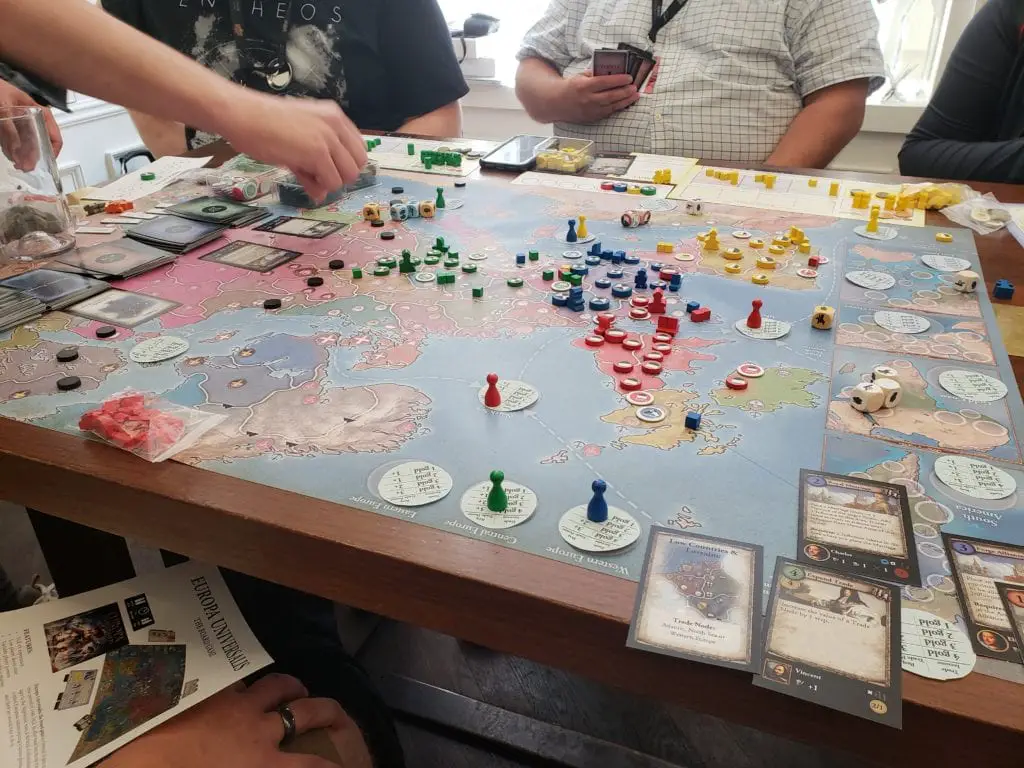
The game plays much more like Risk than CK did, but it still had all the depth you expect from a 4X game. They had to make fewer compromises when adapting EU, limiting the game really more in scale than in mechanics. As players, we were able to do things like arrange marriages (much less complicated than in CK), establish trading posts, and expand influence. Aegir also emphasizes the way players can interact during the game, whether through tentative alliances or underhanded schemes to gain power before one must betray the other. There’s also an interesting pass mechanic where you can choose not to take an action, collecting only money from your trading posts and letting the round continue. The passes have consequences, however. When we passed as England, we set off a Burgundian succession crisis that gave most of our enemy France to the HRE and severely weakened their position in the war.
Decisions like that, as well as the overall complexity of nation-building (we didn’t even get into researching new technology and government ideas), mean that Europa Universalis has the potential to be one of the deepest board games released. And that doesn’t even get into the possibilities the “Grand Strategy” mode offers. It’s a game that people who love Risk or Stratego might play if they want to devote that much time to a far more interesting and complex game. It also has gorgeous art taken from the game and just has a polish to it you expect from Paradox.
While there’s less info out on EU’s release, keep an eye out here for the scoop on any new developments.

